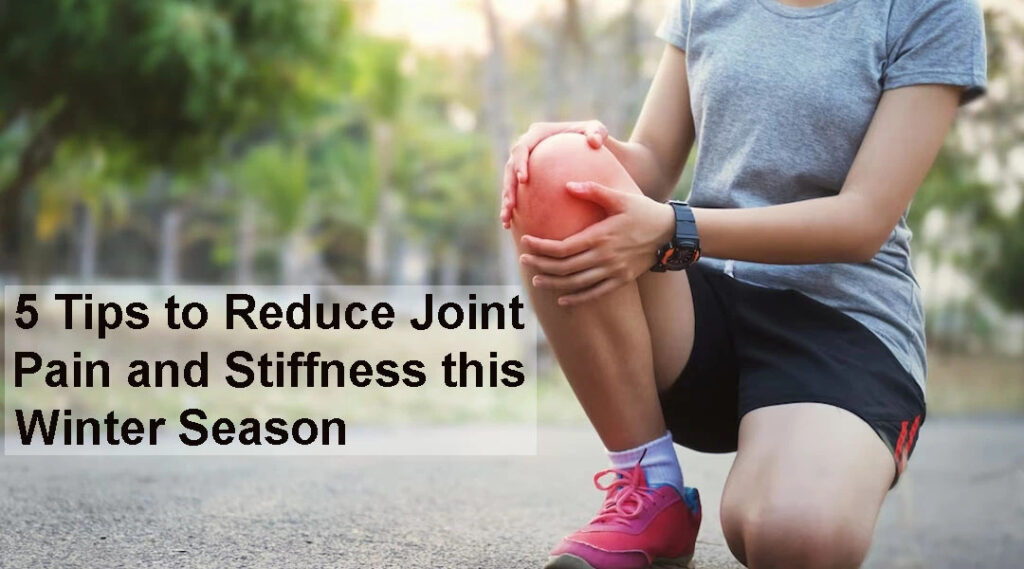Introduction
Winter’s arrival brings colder temperatures, reduced humidity, shorter daylight hours, and fluctuating barometric pressures. These seasonal changes significantly impact individuals with pre-existing joint conditions. The increased joint pain and stiffness during winter, especially in the early morning hours, are commonly reported by those with rheumatoid arthritis and osteoarthritis. Understanding the factors that trigger these symptoms and adopting preventive measures can help manage joint health during the colder months.
Factors Contributing to Winter Joint Pain
Temperature Changes
One significant factor is the lower temperatures, especially in the early morning. Just as oil thickens in cold weather and requires heating to become liquid, joint fluid becomes more viscous in lower temperatures. This increased viscosity contributes to joint stiffness. As the day progresses and the body warms up, the joint fluid’s viscosity decreases, enhancing lubrication and improving mobility. The fluctuation between morning and daytime temperatures further accentuates this phenomenon.
Barometric Pressure Fluctuations
Fluctuations in barometric pressure, inherent to winter weather patterns, also impact joint tissues. Changes in atmospheric pressure can cause joint tissues like muscles, tendons, and ligaments to expand and contract, intensifying pain in individuals with heightened joint sensitivity.
Reduced Physical Activity
Colder weather often leads to reduced physical activity, which can exacerbate joint pain and stiffness. Staying indoors more frequently and engaging in less movement contribute to the tightening of muscles, tendons, and ligaments, worsening joint discomfort.
Vitamin D Deficiency
Spending more time indoors during winter results in less sunlight exposure, leading to vitamin D deficiency. This deficiency can exacerbate joint pain even in individuals with otherwise healthy joints.
Preventive Measures for Winter Joint Pain
Stay Active
Regular physical activity is essential for maintaining joint health. Immobility can lead to tightening of muscles, tendons, and ligaments, increasing stiffness. Engaging in regular stretching exercises, yoga, or light aerobic activities can enhance flexibility and reduce joint pain.
Dress Appropriately
Wearing appropriate clothing to stay warm, both indoors and outdoors, can help combat the stiffness induced by cold temperatures. Layering clothing, wearing thermal wear, and using blankets can help maintain body warmth and reduce joint discomfort.
Heat Treatments
Incorporating heat treatments, such as hot showers, warm baths, or using a heating pad, can effectively alleviate weather-related aches. Heat promotes blood flow, loosening tight ligaments and tendons, and providing relief from stiffness.
Maintain a Healthy Diet
Consuming a balanced diet rich in vitamins and minerals supports overall joint health. Foods high in omega-3 fatty acids, antioxidants, and vitamin D can help reduce inflammation and maintain bone health. Consider incorporating fatty fish, nuts, seeds, and leafy greens into your diet.
Stay Hydrated
Drinking plenty of water is essential for maintaining joint lubrication. Dehydration can lead to increased joint pain and stiffness, so ensure you stay adequately hydrated, even during the colder months when the sensation of thirst might be reduced.
Follow Medical Advice
For those with arthritis, adhering to prescribed medications and treatment plans is essential. Regular check-ups with your physician and rheumatologist ensure that your condition is monitored and managed effectively. If you experience persistent and unbearable joint pain, seek professional guidance instead of relying on home remedies.
Conclusion
While winter’s cold weather and environmental changes can exacerbate joint pain and stiffness, adopting proactive measures can significantly alleviate these symptoms. Staying active, dressing warmly, incorporating heat treatments, maintaining a healthy diet, staying hydrated, and following medical advice are essential steps in managing joint health during winter. Recognizing the subjective nature of weather-related joint pain and seeking professional care when needed ensures effective and comprehensive management of joint conditions during the colder months.
Note – For more information or to receive a free consultation from our experienced doctors, please call us at +91-9058577992.
